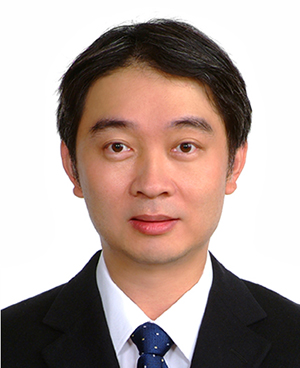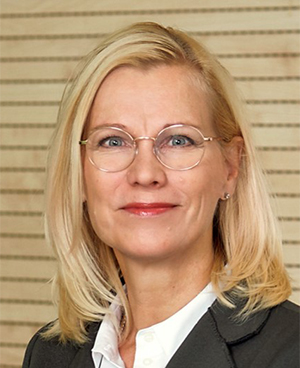


Professor and Chair of Learning, Design and Technology
University of Mannheim
UNESCO Deputy Chair of Data Science in Higher Education Learning and Teaching
Curtin University
Prof. Dirk Ifenthaler is Professor and Chair of Learning, Design and Technology at University of Mannheim, Germany and UNESCO Deputy Chair of Data Science in Higher Education Learning and Teaching at Curtin University, Australia. Prof. Ifenthaler’s research focuses on the intersection of cognitive psychology, educational technology, data analytics, and organisational learning. His research outcomes include numerous co-authored books, book series, book chapters, journal articles, and international conference papers, as well as successful grant funding in Australia, Germany, and USA. He is the Editor-in-Chief of the Technology, Knowledge and Learning, Senior Editor of Journal of Applied Research in Higher Education, and Deputy Editor-in-Chief of International Journal of Learning Analytics and Artificial Intelligence for Education (www.ifenthaler.info • dirk@ifenthaler.info).
Recent research focussing on the adoption of learning analytics reports high interest among educational organisations. At the same time, the maturity level of available organisation-wide learning analytics systems is still low, i.e., organisations are aware of learning analytics and start experimenting with dashboards for students and teachers, however, they are far from organisational transformation. Accordingly, learning analytics remains an interest for educational organisations rather than a major priority.
In this keynote speech, current research findings regarding the effectiveness of learning analytics are critically examined and implications for organisational change as well as pedagogical practice will be provided. Examples of actionable frameworks and adoption models for successful integration of learning analytics systems into educational organisations will be presented, and challenges encountered during the adoption of learning analytics in educational organisations will be highlighted.

Prof. Bart Rienties
Professor in Learning Analytics
Institute of Educational Technology
Open University UK
Prof. Bart Rienties is Professor of Learning Analytics and programme director of the learning analytics and learning design research programme at the Institute of Educational Technology at the Open University UK. As programme director he leads a group of academics who provide university-wide learning analytics and learning design solutions and conduct evidence-based research of how students and professionals learn. As educational psychologist, he conducts multi-disciplinary research on work-based and collaborative learning environments and focuses on the role of social interaction in learning, which is published in leading academic journals and books. His primary research interests are focussed on Learning Analytics, Professional Development, and the role of motivation in learning. Furthermore, Prof. Rienties is interested in broader internationalisation aspects of higher education. He has successfully led a range of institutional/national/European projects, and has received a range of awards for his educational innovation projects. He has published over 200 academic outputs, and is the 4th most cited author and contributor in Learning Analytics in the period 2011-2018 (Adeniji, 2019), the 5th most published author on internationalisation in the period 1900-2018 (Jing et al. 2020), the 7th most published author on social network analysis in social sciences in the period 1999-2018 (Su et al. 2020), and the 14th most published author on educational technology in the period 2015-2018 (West & Bodily, 2020).
The Open University UK (OU) has been implementing learning analytics and learning design on a large scale since 2012. With its 170+ students and 4000+ teaching staff, the OU has been at the forefront of testing, implementing, and evaluating the impact of learning analytics and learning design on student outcome and retention. A range of reviews and scholarly repositories (e.g., Web of Science) indicate that the OU is the largest contributor to academic output in learning analytics and learning design in the world. However, despite the large uptake of learning analytics at the OU there are a range of complex issues in terms of buy-in from staff, data infrastructures, ethics and privacy, student engagement, and perhaps most importantly how to make sense of big and small data in a complex organisation like the OU. Our latest research for example shows that:
During this ICOIE 2021 keynote I would like to share some of my own reflections of how the OU has implemented learning analytics and learning design, and how these insights are helping towards a stronger evidence-base for data-informed change. Furthermore, by sharing some of the lessons learned from implementing learning analytics and learning design within the OU and other organisations we have worked with on a large scale I hope to provide some dos and don’ts in terms of how you might consider to use data in your own practice and context

Prof. Yeping Li
Professor, Department of Teaching, Learning, and Culture
Texas A&M University
Prof. Yeping Li is a Professor at the Department of Teaching, Learning, and Culture at Texas A&M University, USA. He was also named by Shanghai Municipal Education Commission as “Eastern Scholar” Chair Professor at Shanghai Normal University, China. His research interests include STEM education, mathematics education and teacher education. He is the founding editor-in-chief of the International Journal of STEM Education (#1 journal in STEM education research worldwide) and Journal for STEM Education Research, both published by Springer, and is also the editor of several monograph series including, Advances in STEM Education also published by Springer. In addition to publishing over 15 books and special journal issues, he has published more than 100 articles in topic areas that he is interested in. His work has been supported by various funding agencies, including the U.S. National Science Foundation and Spencer Foundation. He also organized and chaired many group sessions at various national and international professional conferences, such as the American Educational Research Association (AERA) annual meetings, the 10th International Congress on Mathematical Education (ICME-10) in 2004, ICME-11 (2008), ICME-12 (2012), and ICME-13 (2016). He received his Ph.D. in Cognitive Studies in Education from the University of Pittsburgh, USA.
The emerging field of science, technology, engineering and mathematics (STEM, later also STEAM by adding “Arts”, STREAM by adding “Reading”) education presents some fascinating opportunities for transforming school education, not only due to the fact that STEM is important for students’ learning now and in the future. Historically, STEM education as discipline-based education has long been in place with a focus on mathematics and science. Recent calls for a broader focus on STEM education have generated more and more interest in exploring and understanding different forms and approaches of this movement in many education systems. Correspondingly, research development in STEM education has experienced dramatic changes over the past decade, providing much-needed scholarship support to further STEM education within and across education systems. With the rapid increase in the number of scholarly publications on STEM education in recent years, knowing and understanding the status and trends in STEM education internationally support the development of the field. In this talk, I will first provide a review of research development in STEM education with surveys of journal publications in various scopes. The review then provides an empirical base for further discussion of global trends and hot topics in STEM education as presented in literature.

Prof. Gwo-Jen Hwang
Chair Professor, Graduate Institute of Digital Learning and Education
Taiwan University of Science and Technology
Prof. Gwo-Jen Hwang is currently a Chair Professor at the Taiwan University of Science and Technology. Prof. Hwang serves as an editorial board member and a reviewer for more than 30 academic journals of educational technology and e-learning. He is currently the Editor-in-Chief of Australasian Journal of Educational Technology (SSCI), Computers & Education: Artificial Intelligence, International Journal of Mobile Learning and Organisation (Scopus, Q1), and Journal of Computers in Education (Scopus, ESCI). He has also been the principal investigator of more than 100 research projects funded by “Ministry of Science and Technology” as well as “Ministry of Education” in Chinese Taiwan. His research interests include mobile and ubiquitous learning, flipped learning, digital game-based learning, and artificial intelligence in education.
Prof. Hwang has published more than 700 academic papers, including more than 350 journal papers and 350 conference papers. Among those publications, more than 250 papers are published in SSCI journals. Owing to the reputation in academic research and innovative inventions in e-learning, he received the annual most Outstanding Researcher Award from the “Science Council of Taiwan” in the years of 2007, 2010 and 2013. Moreover, in 2016, he was announced by Times Higher Education as being the most prolific and cited researcher in the world in the field of social sciences (https://www.timeshighereducation.com/news/ten-most-prolific-and-most-cited-researchers).
STEM (science, technology, engineering, and mathematics) refers to the cross-disciplinary learning design for engaging students in applying integrated knowledge to complete a project or solve a complex problem. It has been recognized by many scholars for its educational significance. On the other hand, it is generally challenging for researchers and school teachers to design STEM research and tasks.
This talk aims to introduce the educational objectives and research trends of STEM as well as the methods for designing STEM research. In addition, several learning design approaches and measuring tools for STEM activities are presented as well. This talk will be of great value to researchers and school teachers who are interested in developing STEM research and applications.

Professor
Learning and Educational Technology Research Unit
Department of Educational Sciences
University of Oulu
Prof. Sanna Järvelä is a professor in the field of learning and educational technology and one of the heads of the Learning and Educational Technology Research Unit (LET) in the Department of Educational Sciences, University of Oulu, Finland. Her main research interest deal with self-regulated learning and computer supported collaborative learning. Prof. Järvelä and her research group is internationally recognized in theoretical and methodological advancement of social aspects of self-regulated learning (socially shared regulation in learning) and processes oriented and multimodal research methods. She has published more than 180 scientific papers in international refereed journals and about 50 book chapters and three edited books. She is the co-Chief Editor in the International Journal of Computer Supported Collaborative Learning and invited member of the expert group of the OECD’s PISA 2024 ‘Learning in the Digital World’. Prof. Järvelä is the member of the Finnish Academy of Science and Letters, the past EARLI (European Association for Research on Learning and Instruction) president.
There is much interest to advance digital technologies into intelligent technologies supporting teaching, learning and education. Yet, many initial ideas, e.g., about artificial intelligence in education, still lack systematic understanding of human learning process. In this talk I leverage my long term self-regulated learning research, socially shared regulation in collaborative learning in specific, to intelligent learning technologies in order to understand and support better learning. In my research we have been implementing multimodal methods to identify when, how, and what makes regulation in collaborative learning functional.
I will introduce the theoretical progress in understanding socially shared regulation and discuss how our multidisciplinary research implementing various multimodal data channels, advanced analytics and instructional design help us to better understand and support regulation of collaborative learning.